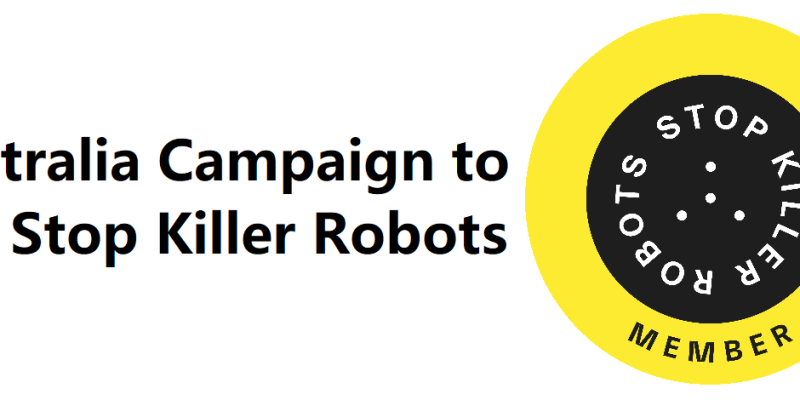
On 1 July Prime Minister Scott Morrison announced Australia’s 2020 Defence Strategic Update which he described as a response to a “poorer, more dangerous world”. The Defence Strategic Update outlined expenditure for increased defence capabilities totalling $270 billion over the next 10 years. The aggressive strategy centres around ‘shaping Australia’s strategic environment’, deterrence and establishing credible military responses designed to counter the growing influence of China and respond to the changing defence landscape across the Indo-Pacific region.
While the continuous safety and security of all Australians must be a priority, SafeGround firmly believes exorbitant defence spending is not the most effective or humane approach to protecting Australia and ensuring the security of our region. We hold specific concerns over the advancements in autonomous capabilities, but also firmly believe that a large proportion of the enormous $270 billion budget should be redirected to more pragmatic, humanitarian ways of ensuring Australia’s security and regional influence in two key ways: investing in foreign aid and development support for our neighbours and reducing Australia’s contribution to and the humanitarian impacts of the climate emergency to reduce the number of climate refugees and number of displaced Australians.
A dangerously unethical investment
SafeGround’s core focus has, for the last 20 years, been to reduce the impacts of explosive remnants of war (ERW) to better protect civilians and ensure lives and livelihoods are protected. Since the early 1990s, we have continually advocated for humanitarianism to be prioritised during conflicts by limiting the use of those weapons that cause the most harm to civilians during and after the conflict. This advocacy, combined with the advocacy of many others around the world, resulted in two significant weapons ban treaties: the 1997 Anti-Personnel Mine Ban Convention and the 2008 Convention on Cluster Munitions.
Our advocacy evolves in response to emerging defence technologies, and we continue to view disarmament as an essential element of security for all civilians. Most recently, our core advocacy focus has been urgently calling for a ban on fully autonomous weapons. Fully autonomous weapons are those that do not require meaningful human control when selecting and engaging targets, instead relying on AI algorithms for decision making – which raises a host of moral, ethical, legal and security concerns.
The intended investment in autonomous capabilities, leading a worrying path to fully autonomous weapons was highlighted by the Defence Strategic update which stated in Australia’s changing strategic environment, “emerging and disruptive technologies will be rapidly translated into weapons systems, including autonomous systems…reducing decision times and improving weapon precision and lethality.” Alarmingly, the Strategic Update also identifies the acquisition of loitering munitions and options to invest in “autonomous combat aircraft”. This sees Australia skirting a fine ethical and moral line – a line that must never be crossed if civilians are to be protected during armed conflict. The Department of Defence and the Australian government must commit to ruling out fully autonomous weapons and maintain meaningful human control over the use of lethal force by joining other countries in supporting an international weapons ban that emphasises the need to maintain meaningful human control over the use of lethal weapons. It would be unacceptable, immoral and irresponsible for Australia to ever develop or procure fully autonomous weapons under the guise of protecting Australians.
Foreign Aid for National Security
With the release of the Defence Strategic Update, Scott Morrison iterated the focus on Australia’s “immediate backyard” and being a good neighbour, and a portion of the $270 billion is earmarked for regional engagement. While increased regional engagement is a welcome initiative, SafeGround believes this needs to be expanded to increased investment in foreign aid and development funding. Soft power is a key strategy for ensuring regional influence, and is something Australia desperately lacks after repeated slashes to aid funding over the last decade. This is in stark contrast to China, where development spending has significantly increased in the same time frame, particularly in the Pacific region.
Having worked in post-conflict humanitarian settings around the world, SafeGround sees a two-pronged approach of supporting defence capabilities with humanitarian investment in our geopolitical region as a critical alternative to a singular defence build up. The importance of foreign aid for Australia’s security is well documented by both the Sydney Morning Herald and the Lowy Institute and, in the parallel US context, the Centre for Strategic and International Studies. Of course, SafeGround continues to advocate for increased Australian funding to reduce the impacts of ERW throughout the Indo-Pacific region, and further abroad, to ensure the ongoing impacts of armed conflict on civilians is removed.
The biggest threat of all
Australia’s security is also faced with non-traditional threats. The world is beginning to experience the adverse impacts of progressive climate crises. SafeGround is deeply concerned by the lack of recognition of the immense displacement of peoples in our immediate future, both within Australia and internationally. The climate emergency remains the biggest threat to the safety and security of Australians, forecast to create environmental damage resulting in food scarcity, resource competition and consequent conflict, livelihood insecurity and driving people from their homes.
Worldwide, the projected numbers of climate-forced migrants by 2100 are about 290 million, or about 3% of the projected global population by this century’s end. The numbers of climate-driven refugees in south and south-eastern Asia (excluding China) and the Pacific, whilst impossible to quantify precisely, are expected to reach at least 90 million people by 2100, and eventually much more. This assessment is based upon the combined median impact of floods, droughts, water resources depletion, salinisation, sea level rise, increased storm intensity, environmental and crop degradation (multiple factors). Australia will not be immune from these effects nor from the impact of such huge numbers of people forced to migrate which will be de-stabilising for the region.
Domestically, Australia has already seen the devastating effects of bushfires from the 2019-2020 summer: over 18.5 million hectares burned, over 3,500 homes and 5,700 other buildings destroyed, and nearly 450 bushfire-linked deaths. The destruction of the bushfires was exacerbated by the lack of adequate resources. It is paramount our fire service is equipped to be able to respond effectively, but also that we take preventative and adaptive measures to tackle the root causes for the future.
Australia’s dismal investment in reducing its significant contribution to the climate crisis, juxtaposed against this defence expenditure, is unconscionable. A reallocation of some of these funds to other investment in climate change mitigation and protection – renewable energy, increased support to fire and homelessness services, emissions reductions schemes, or many other options – is without a doubt a better use of taxpayer money to ensure real security for Australians in the long term.
SafeGround feels the Defence Strategic Update falls short in truly protecting the security interests of Australia, through an over-emphasis on military deterrence and response and a failure to oppose fully autonomous weapons coupled with insufficient funds allotted to crucial aid and development for our neighbours and to address the climate crisis.



